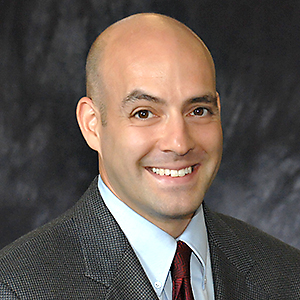What Does John Bolton’s Appointment Mean for the ICC Investigation in Afghanistan?
John Bolton’s appointment as national security adviser may have the most dramatic implications for U.S. policy toward North Korea and Iran. But there’s another dimension to his elevation that deserves at least some attention. Bolton, who has been a ferocious opponent of the International Criminal Court, will likely be assuming his post just as the ICC opens its first ever investigation of United States conduct.
Published by The Lawfare Institute
in Cooperation With

John Bolton’s appointment as national security adviser may have the most dramatic implications for U.S. policy toward North Korea and Iran. But there’s another dimension to his elevation that deserves at least some attention. Bolton, who has been a ferocious opponent of the International Criminal Court, will likely be assuming his post just as the ICC opens its first ever investigation of United States conduct.
That looming investigation has received plenty of attention on this site. To recap, ICC prosecutor Fatou Bensouda has requested authority from a three-judge panel to open an investigation of range of alleged crimes in Afghanistan, including by the Afghan government and by the Taliban and associated forces. An important component of that investigation will be U.S. interrogation practices in Afghanistan and at several “black sites” in Europe, primarily between 2003 and 2005.
A decision from the judges is expected imminently, and anything other than authorization to open the investigation would be stunning. The judges have requested additional information from the prosecutor’s office twice and seem to be more inclined to expand the investigation than limit it. What’s more, there is no precedent for a panel of judges denying a prosecutor’s request to open an investigation.
So assuming that the ICC begins its investigation shortly after Bolton becomes national security advisor, what does this mean? Given Bolton’s past attempts to limit the ICC’s influence and his tough rhetoric toward the young institution, one might expect a full-on offensive against the court, possibly including pressure on allies to abandon the organization or even sanctions and financial restrictions designed to hamper its work.
When he served as undersecretary of state, Bolton focused intensely on circumscribing the court’s reach. He signed the letter telling the U.N. that the United States had no intention of ratifying the Rome Statute. He and his team crisscrossed the globe negotiating bilateral agreements through which countries pledged never to send U.S. personnel to the court. And in internal administration deliberations, Bolton forcefully opposed allowing a U.N. Security Council referral of the situation in Darfur to the court, arguing that doing so would legitimize the institution. (He lost that debate, and the Bush administration eventually abstained on the referral resolution.)
In recent years, Bolton has had less to say about the court, the activities of which have generally been inoffensive to the United States. But Afghanistan is changing that fast. Not long after Bensouda requested an investigation, Bolton took to the pages of the Wall Street Journal to register his outrage. That op-ed seemed mostly to be a cutting and pasting of his previous work, but it did offer this roadmap for U.S. policy:
America should welcome the opportunity, as in Churchill's line about Bolshevism, to strangle the ICC in its cradle. At most, the White House should reply to Ms. Bensouda with a terse note: “Dear Madame Prosecutor: You are dead to us. Sincerely, the United States.” Other countries wanted the ICC; let them live with it.
That paragraph actually describes two quite distinct strategies. One would be to simply ignore the ICC, stop interacting (even informally) with the prosecutor’s office, and offer the institution no support even in other investigations. Strangling the court in its cradle, by contrast, would involve an active and multifaceted strategy aimed at undermining the institution.
Given the numerous other issues and crises that will likely compete for Bolton’s attention in his role as national security advisor, the terse note may well win out over the elaborate anti-ICC campaign this time around.



.jpg?sfvrsn=8588c21_5)
